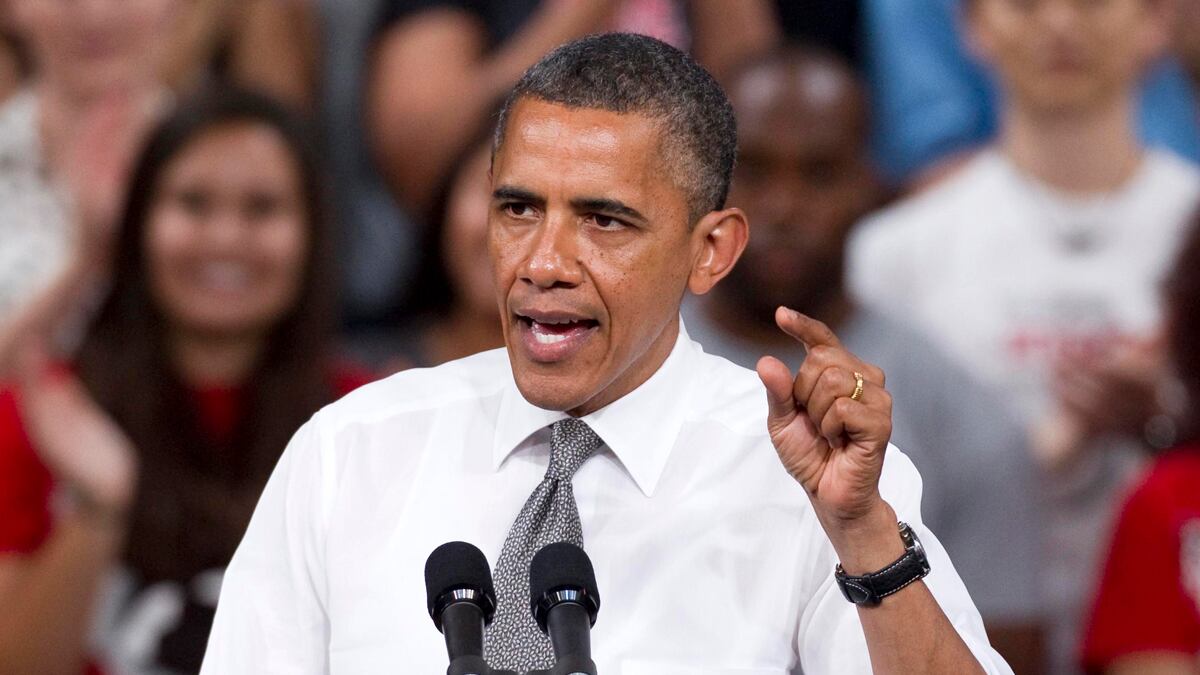Sen. John McCain fired the first volley on Saturday, accusing the Obama administration of deliberately leaking state secrets to The New York Times for political gain. In the week since, a parade of Republicans has echoed his call for an investigation and Democrats, too, have decried recent leaks, while defending the president against accusations that they were orchestrated. But the brewing scandal is about more than political tit-for-tat. It illustrates the sad reality that our broken classification system is too often more about power than security.
Last week, the Times ran two sensational front-page articles, one detailing the president’s personally administered list of terror suspects targeted for assassination—the so-called “kill list,”—the other a book excerpt about the origins of the cyberwarfare program, codenamed Olympic Games, out of which came the Stuxnet virus. Both pieces were widely seen as boosting the president’s credibility on national security just as the 2012 presidential race kicked into high gear. Both pieces cite anonymous current and former high-level officials in the administration. The White House has denied that the leaks were authorized, calling the suggestion “grossly irresponsible.”
In an interview on CBS News with Charlie Rose on Wednesday, McCain put his finger on the essence of the problem. Rose notes that one of the journalists, David Sanger, consulted with government officials to withhold details that could jeopardize operations.
“So now David Sanger decides, and administration officials ... which top-secret information, highly classified information, is OK to be revealed or not?” McCain said. “In an honest environment, they would have declassified this information already if they had wanted it publicized to the American people.”
This is the nugget of the problem. If information is too dangerous to be public, it’s supposed to be classified. If it isn’t, then it isn’t—full stop. Information isn’t classified—at least it isn’t supposed to be—for political gain or to cover up wrongdoing, or so high-level government officials can unilaterally dole out secrets to their favorite reporters at elite media organizations, or so well-connected politicians can manage the news cycle, undermine enemies, or win allies.

Officially, there is no middle ground. Sadly, leaks out of the Obama administration are beginning to look like official policy. Days before the Stuxnet and kill-list stories in the Times, columnist Glen Greenwald highlighted administration leaks to Hollywood filmmakers for an upcoming production about the raid that killed Osama bin Laden. This, amid the harshest crackdown on unauthorized leaks by any president ever—the Obama administration’s docket of six leak prosecutions under the Espionage Act dwarfs any previous administration’s persecution of loose-lipped officials.
On Thursday, congressional leaders announced they would introduce legislation to crack down on leaks. But the problem isn’t that the ship of state is too leaky, it’s that it’s too full. We classify more information than ever, diluting the well of state secrets with harmless information that should never have been secret in the first place. Meanwhile, the number of people holding a top-secret clearance has skyrocketed to well over a million. And as we rely more heavily on the use of drones, targeted assassinations, undeclared and covert wars—operations on the “dark side,” as Dick Cheney said after the 9/11 attacks—central aspects of our foreign policy increasingly take place under a cloak of secrecy. In short, we have more people with more access to more secrets than ever before, all while we’re more dependent than ever on leaks to understand what our government is up to. We’ve created a situation in which leaks are not only inevitable but necessary. If the administration is cynically using leaks for political advantage, it’s saddening and reprehensible—and the least of our problems.






